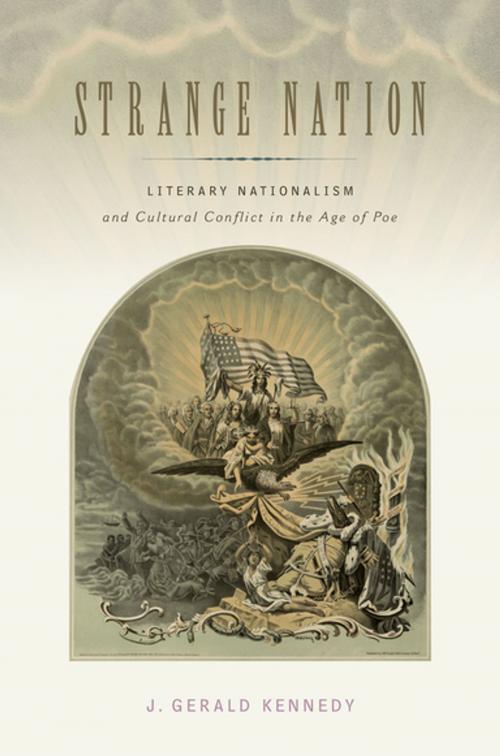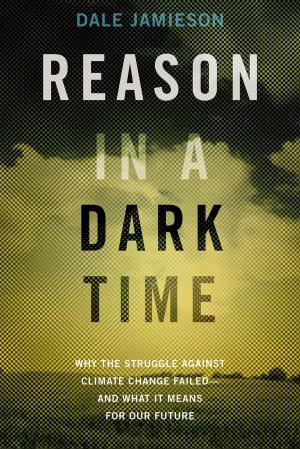Strange Nation
Literary Nationalism and Cultural Conflict in the Age of Poe
Fiction & Literature, Literary Theory & Criticism, Nonfiction, History, Americas, Social & Cultural Studies, Political Science| Author: | J. Gerald Kennedy | ISBN: | 9780190491284 |
| Publisher: | Oxford University Press | Publication: | March 21, 2016 |
| Imprint: | Oxford University Press | Language: | English |
| Author: | J. Gerald Kennedy |
| ISBN: | 9780190491284 |
| Publisher: | Oxford University Press |
| Publication: | March 21, 2016 |
| Imprint: | Oxford University Press |
| Language: | English |
After the War of 1812, Americans belatedly realized that they lacked national identity. The subsequent campaign to articulate nationality transformed every facet of culture from architecture to painting, and in the realm of letters, literary jingoism embroiled American authors in the heated politics of nationalism. The age demanded stirring images of U.S. virtue, often achieved by contriving myths and obscuring brutalities. Between these sanitized narratives of the nation and U.S. social reality lay a grotesque discontinuity: vehement conflicts over slavery, Indian removal, immigration, and territorial expansion divided the country. Authors such as Washington Irving, James Fenimore Cooper, Catharine M. Sedgwick, William Gilmore Simms, Nathaniel Hawthorne, and Lydia Maria Child wrestled uneasily with the imperative to revise history to produce national fable. Counter-narratives by fugitive slaves, Native Americans, and defiant women subverted literary nationalism by exposing the plight of the unfree and dispossessed. And with them all, Edgar Allan Poe openly mocked literary nationalism and deplored the celebration of "stupid" books appealing to provincial self-congratulation. More than any other author, he personifies the contrary, alien perspective that discerns the weird operations at work behind the facade of American nation-building.
After the War of 1812, Americans belatedly realized that they lacked national identity. The subsequent campaign to articulate nationality transformed every facet of culture from architecture to painting, and in the realm of letters, literary jingoism embroiled American authors in the heated politics of nationalism. The age demanded stirring images of U.S. virtue, often achieved by contriving myths and obscuring brutalities. Between these sanitized narratives of the nation and U.S. social reality lay a grotesque discontinuity: vehement conflicts over slavery, Indian removal, immigration, and territorial expansion divided the country. Authors such as Washington Irving, James Fenimore Cooper, Catharine M. Sedgwick, William Gilmore Simms, Nathaniel Hawthorne, and Lydia Maria Child wrestled uneasily with the imperative to revise history to produce national fable. Counter-narratives by fugitive slaves, Native Americans, and defiant women subverted literary nationalism by exposing the plight of the unfree and dispossessed. And with them all, Edgar Allan Poe openly mocked literary nationalism and deplored the celebration of "stupid" books appealing to provincial self-congratulation. More than any other author, he personifies the contrary, alien perspective that discerns the weird operations at work behind the facade of American nation-building.















